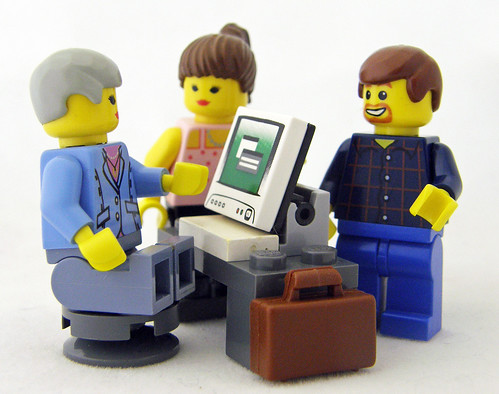Redefining “Bullying”

Photo Credit: shewatchedthesky via Compfight cc
According to Donegan (2012), the term “bully” is traceable back to the 16th century, but according to Wikipedia it didn’t always have a negative conotation, and in fact once meant “sweetheart”. Fast forward to the 21st century and my goodness how this word has evolved! With the more recent “cyber bullying” being put into the mix, the term evolves yet again to include how our social lives now include an online and/or digital presence.
I had never thought about whether or not this term was still relevant but after reading Boyd’s (2010) article, it seems that teenagers don’t necessarily relate to this word. What I now wonder is if this has to do with our generation’s lack of evolution into their cyber world? If kids only percieve the word “bullying” to be relevant only to physical acts or things that happen face-to-face, could this be because of the manner we are eductating them about what bullying really is? As adults we are expected to guide today’s youth through making smart choices in ALL aspects of their lives. However, how much can we teach them if we ourselves do not fully understand of the ways in which kids are socializing?
I’m sure that schools make an effort to educate kids on what we call “cyber bullying”, especially in middle school and high school. What I wonder about is how effective it all is? Do kids dismiss what they’re told assuming adults don’t really know what it’s like. Should we be demonstrating rather than telling so that they can connect better to the concepts?
Transferring our values online

Photo Credit: Kaptain Kobold via Compfight cc
I think everyone will agree that school has been a place that does not only try to educate children in content knowledge but also in a variety of social values, which we hope children will take and apply in the real world. Today’s real world involves an online presence and yet we don’t teach character education in relation to our digital lives. I think that whatever form of value education is happening in individual schools, there is a need to make the connection to digital citizenship more obvious and apparent within the curriculum. As I mentioned in my previous blog post, if we teach them to respect people, places and things around them, these same values need to apply to their behavior online.
Cyberspace is so fast and vast that putting limitations on it can be difficult. I imagine this is the reason why may schools and districts feel that generally banning or locking major parts of the internet is safer than allowing it because there isn’t enough manpower to actually monitor student activity! A educators we are used to being able to monitor our students and guide them through things, this just isn’t possible when it comes to being online.
This brings me to the case of Avery Doninger. I understand that she was fighting for her right to freedom of speech, however, change the targeted person from ‘school official’ to ‘fellow student’ and it would probably turn into a case of cyber bullying. Just because she was attacking an adult, does that make it ok?
Digitally blurring lines
I feel technology has really blurred the ilnes of what is acceptable and unacceptable in our society these days. It presses even further the importance of teachers putting more effort into understanding the digital world so that we can help teach appropriate online behavior. Technology just moves forward so fast that it is difficult to come up with a set of “rules” that encompasses everything that people may be participating in. Plus, people are creating new pieces to this world everyday, it’s not exactly easy to keep up.
Digital footprint, copyright, cyber bullying, digital citizenship, regardless of what we talk about, I think more than ever it is important to make connections to our core human values: respect, responsibility, empathy etc. but to make the connection to our digital lives more apparent.
A little something to think about…
Here is a video I found when I was doing some research on copyrights. It turns out that the song “Happy Birthday” is still making money! So technically, should we be paying something everytime we sing this song?!?! COETAIL seems to be about sharing our work (not copying and claiming to be one’s own), but sharing so that we can all help each other learn. I think that when a creative work becomes a part of culture, as this song has become a part of birthdays around the world, really, doesn’t it belong to society now? How long is enough for copyrighting? I mean, the original composer passed away quite some time ago, so it’s become about people who want to make money. What’s your opinion?

Recent Comments